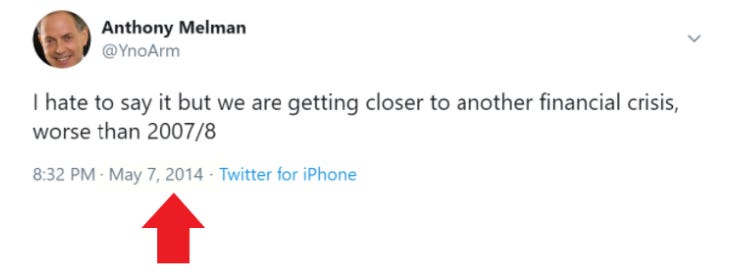
I want to give a sermon on the SPAC craze through the parable of Anthony Melman. SPACs are publicly-listed blank check acquisition vehicles.
SPAC IPOs have raised $43 billion through the first nine months of 2020. Investors are willing to entrust their money to dealmakers with a supposedly golden touch hoping they make a great acquisition. SPACs are raised on the pedigree of the sponsors. I think you maximize your chances if you know both the business and the backers and everything checks out. Pedigree alone is a brand of dog food. Consider the supremely talented Anthony Melman and his Acasta Enterprises fiasco. Acasta is now known as Apollo Healthcare. The stock is up 6x in 2020, because it makes sanitizers. But prior to this year, it was known as a SPAC cautionary tale, losing about 95% of its value at the bottom. It's still down 63% overall.
Some people credit Tony Melman for being the mastermind behind the early success of Onex. Chief among them would be Tony Melman. He got a PhD in Finance in his native South Africa. He then moved to Canada to work for CIBC. He was eventually one of Gerry Schwartz's first recruits in 1984. He's the guy who conceived of the Celestica acquisition, probably the best known Onex deal. Celestica was a neglected division of IBM. Melman orchestrated the carve-out of Celestica, paying $750m. For a while, it was a big success for Onex, at one point being valued at $20B. Bizarrely, I see Onex still has an interest in Celestica, now valued at $1.2B. Melman left Onex in 2006, some have said because he wasn't getting enough credit there.
The Acasta SPAC raised some $400m in 2015 attracting not just retail money, but big-time backers as well, thanks to Melman's reputation. His main partner was Magna heiress Belinda Stronach. The list also included two big bank CEOs (Gord Nixon and Rick Waugh) who put their names on the line as advisors. The Acasta SPAC made not one, but three acquisitions in sensible fields: aircraft financing, cosmetics and chemicals. What befell this Illuminati-grade enterprise headed by a PhD in finance? Just plain old excess debt. The debacle has been well chronicled elsewhere.
I analyzed Acasta once the acquisitions were in place, which I thought were sensible. I can’t recall exactly why I didn’t invest, but I did come across a talk by Melman from around 2015 that’s still online. Some alarming things you’ll hear:
“I went to see a spiritualist.”
“I did have a visitation.”
“I had an energy massage.”
“I experienced the various chakras.”
“I had reached the point in my life where I could lie in bed at night and see the violet light…the clouds…I would see the odd color here and there…but it was very much the violet light.”
“Something is going on with the number eleven.”
I bet none of these statements made the cut for the Acasta prospectus. You can watch the video here. The kompromat mother lode starts at 15:40.
How did the Tony Melman, Belinda Stronach Dream Team come about? Before Acasta the SPAC, those two teamed up to launch Acasta Capital, a firm that offers advice to CEOs. The premise is that it’s lonely at the top. According to Melman: "There’s a lack of what I’d call wise, all-encompassing advice." That's probably true. Frankly, I have trouble just finding a half-decent numerologist.
Anyways, all investing is hit or miss, it’s probably unfair to pick apart one deal in a long career. Here’s the Rock of Onex recounting the glory days: